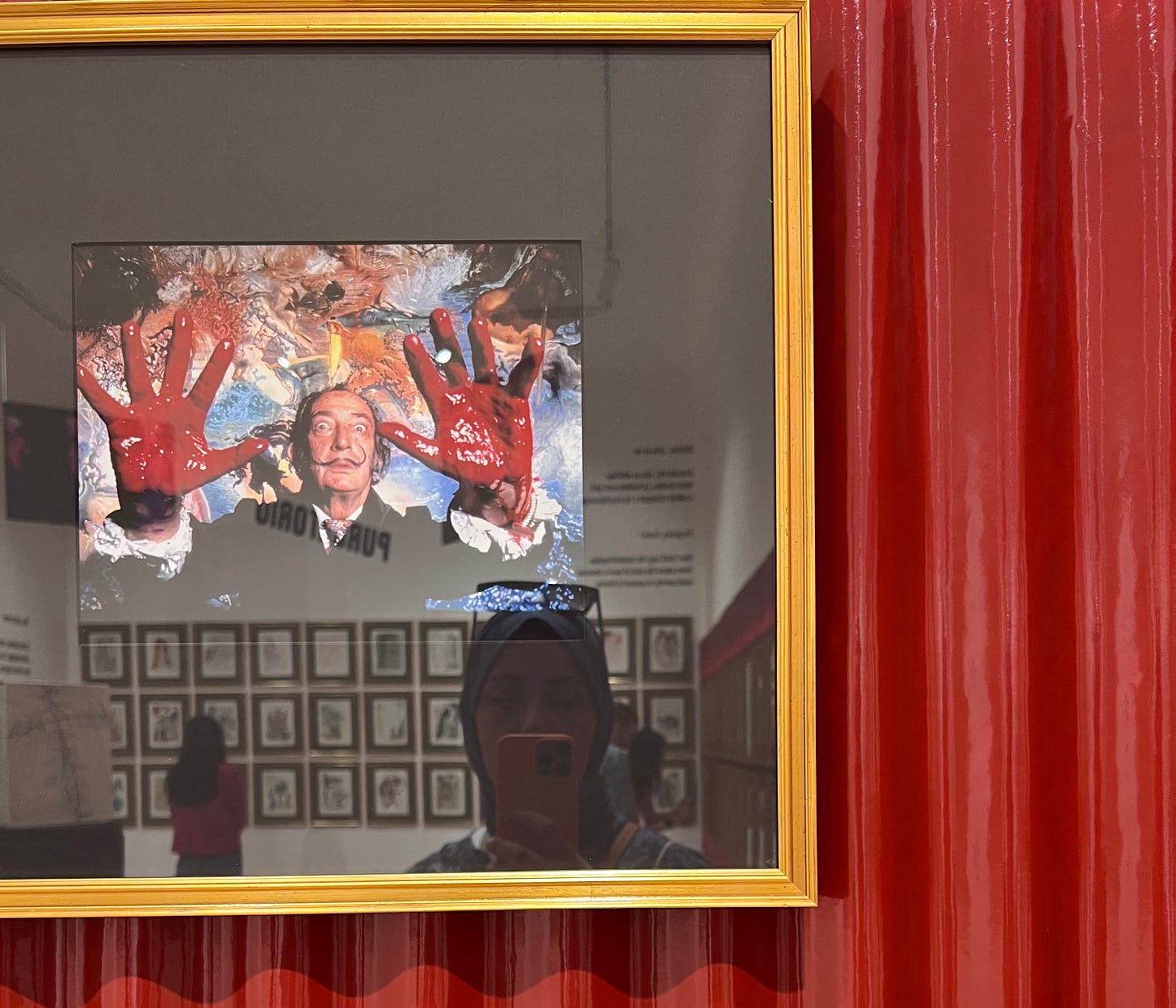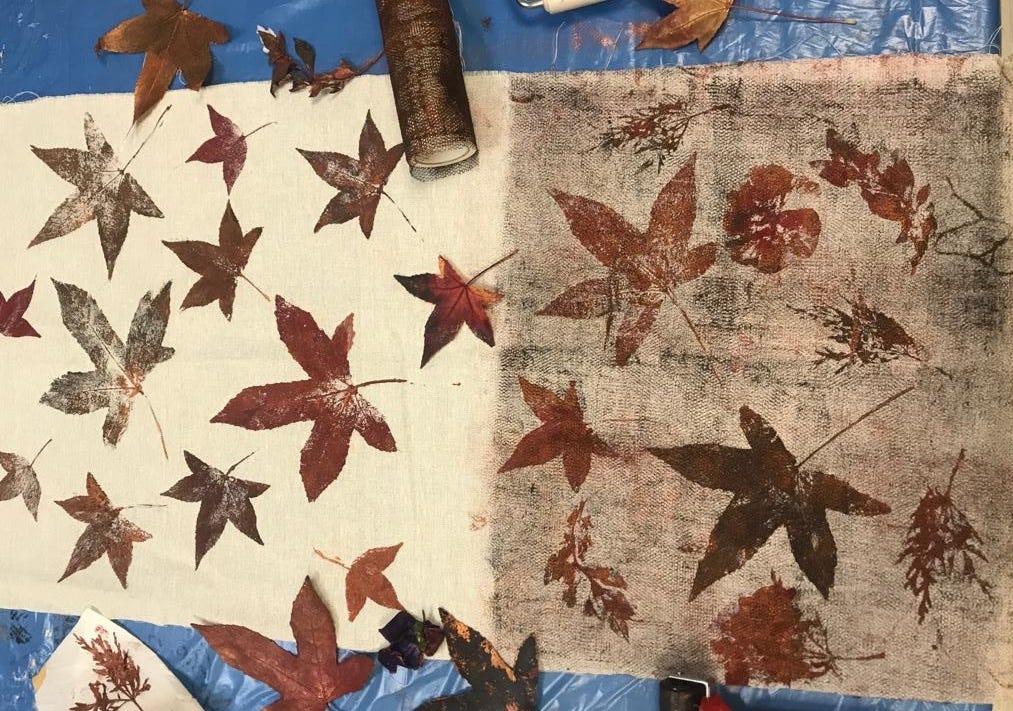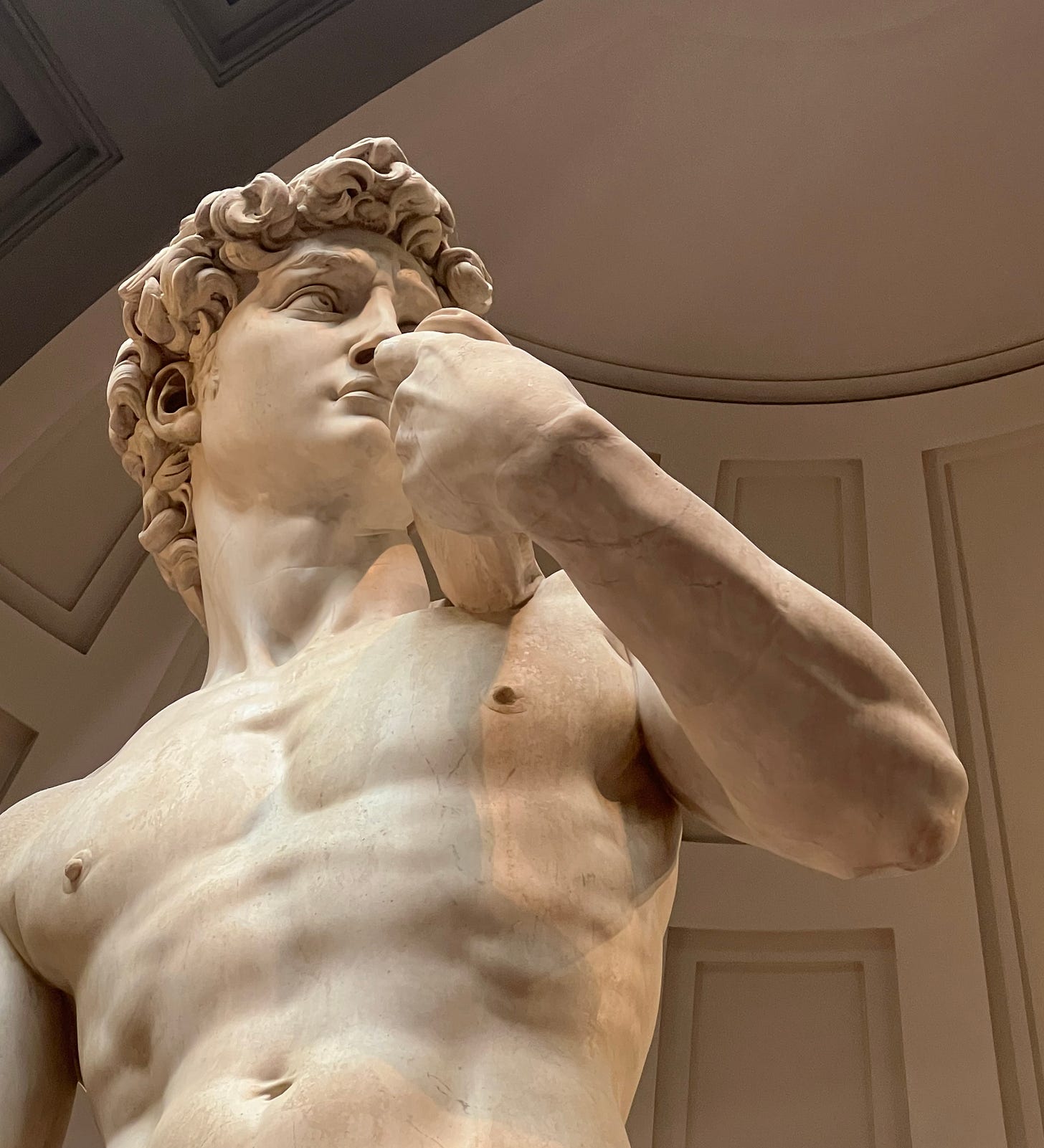The Power of Letting Go & Decluttering: From Chaos to Clarity
Overcome Decision Fatigue and Focus Your Creative Mind.
From Wardrobe to Mindset
Indecisiveness. Being open to many things. The word “opportunity!” sounds amazing, right? Would you be a great photographer? Or maybe learning several languages sounds fun—shouldn’t we do it? Maybe deep down, you know you have a huge eye for style and could be a fantastic fashion designer. All the talents and interests we have. All the ideas in our minds have not been fulfilled yet. All the possibilities of who we could have been.
Now, take a look at your wardrobe. How many pieces do you own that you don’t wear often? A colleague recently told me she packs for trips 1–2 hours before departure, and she said, “I don’t have anything I don’t use at home, so I already know what will go in my luggage.” How nice it is to be able to say this, and imagine how tidy her mind must be. She doesn’t need to re‑analyze items she bought “randomly” or has “for ages,” because she’s done that homework beforehand. There’s nothing in her wardrobe to distract her or cause indecision. Another colleague in my previous role said, “I don’t buy anything new unless I sell an item from my wardrobe, so I always own the same number of things.” No surprise she was keen on progressing her career in sustainability.
You can be organized on the outside yet cluttered in your mind—but in general, if a person is cluttered externally, there’s a 90% chance their mind is cluttered too. Overall, if we postpone thinking and analyzing, we end up owning too many thoughts, ideas, and items we don’t need. Those things create noise and distract us from what really matters and where we’re heading.
The cluttered surroundings signal cluttered minds. Unexamined “Good ideas!” lead us to the “Nowhere” Sahara of “Could have, would have, should have.”
Why Do We Clutter?
Fear of losing
Emotional attachment
Procrastination
Fear—fear of loss. We may not want to give up something even if it serves us nothing. We hold on to things and thoughts to protect ourselves. Maybe imagining “I’d be a great photographer” makes us feel talented and special in a corporate job we dislike. Maybe it’s a coping mechanism for not accepting our reality. Or we cling to old clothes that remind us of childhood, or gifts from loved ones. Keeping a few pieces with special meaning is harmless, but if it becomes a pattern, if we can’t dispose of things, that drains energy we could pour into creative endeavors.
Like everything else, our inability to let go is rooted in psychology. Therapy can help dig down to the source. Another thing that helps me is journaling. As Paulo Coelho said, “I only write to understand myself better…”
(There may be an underlying mental health condition. I’m not a doctor or therapist, and this article is intended for people experiencing mild struggles with letting go—from a productivity perspective.)
Fear of losing, or holding on to a dream persona we created for ourselves, might be the reason we can’t let go of things/ideas. If we can find the root of our “why,” we can face our true reality, which is the biggest step toward resolution.

How to Declutter & Let Go?
On the mind level:
Accepting our reality. Where am I now, and where do I want to go?
Asking honest, punch‑in‑the‑face questions. “What bothers me? What am I escaping from?”
Journaling or meditating on our answers.
In our age of abundance—real and digital—no wonder we feel disoriented. I get why Yuval Noah Harari does not have a phone. I’m not there yet (nor planning to be), but giving up Instagram certainly improved my life quality.
On the material level:
What items have been sitting in our wardrobe for ages?
Is it easy for us to travel, or do we tend to carry too much?
How flexible are we when it comes to buying something new—or letting things go?
Are there items we hang onto out of guilt, nostalgia, or obligation?
Which objects tell our story—and which weigh us down?
I’m easily distracted, so I’m a bit obsessive about organization—I can’t stand random clutter. In the kitchen, I cook with one hand, wash dishes with the other, and tidy as I go. Yes, I open the fridge hundreds of times—so cooking takes longer—but I wouldn’t leave a big mess. (Of course, there are exceptions—if I’m too tired—but generally, I keep things organized.) I won’t let undecided items or thoughts pile up. I decide on them right away; if deciding immediately isn’t possible, I write them on my “to‑do list,” then move on.
Analyzing actions and ideas promptly prevents a backlog of vague plans (or dirty dishes!).

What about our deeper dreams? Suppose we say we want to open a boutique, but deep down we crave life in a little cottage—harvesting vegetables in the backyard and raising four kids. What if we only dreamed of the boutique to fit in with our friend group? Or what if we feel guilty choosing just one of our passions as the most important? Why do we fear 'missing out' when deciding between being a writer, a photographer, or a painter—and why can’t some of these simply remain as hobbies? Why does analyzing and choosing our true passion feel more painful than launching every “Good idea!” we have? As I’ve admitted before, I loved paintbrushes more than the process of painting, and letting go of learning it professionally actually liberated the writer in me. I didn’t swear off painting forever; I just chose what mattered most.
The more we listen to our inner voice, the more we realize that many of our “dreams” were shaped by others—and our true wants and needs have been trying to be heard all along.
The Power of Choosing
When Michelangelo saw a block of marble, he saw David, and carved him. I see our talents like that marble: all-purpose dough waiting for a form. You might have a strong visual talent and become a painter, a cinematographer, or an architect with it. Decide which route to take, enjoy the process, and banish the “what ifs.”
Knowing yourself well and accepting that multiple perfect routes exist—but choosing one—is key. As Einstein said, “Genius is 1% talent and 99% hard work.” Talent helps, but dedication matters 99 times more. Trim the dead branches, and one strong branch will bloom. Once you decide your “thing” and start, you won’t regret what you let go—you’ll look ahead, because you’ve already done the hardest part. Once you pull the thread, everything unravels.







I like your ideas thank you for sharing and although I am not a clutter bug, I do have issues going through all my photos and my writings. Those are my “clutterings.”